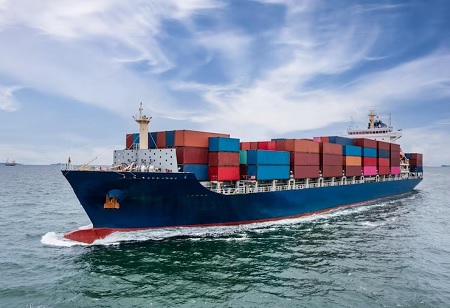
MAN Energy Solutions to offer Ammonia-fuelled Ship Engines post-2027

 MAN Energy Solutions intends to introduce its inaugural ammonia-fueled engine this year, which is slated for deployment on a new vessel in Japan. Following this milestone, the company's CEO has affirmed their readiness to provide ammonia-powered engines to customers post-2027. Ammonia is one of several alternative fuels being considered by shippers to mitigate emissions. Despite transporting approximately 90 percent of global trade, the shipping sector contributes nearly 3 percent of the world's carbon dioxide emissions. Adopting engines that utilize cleaner fuels has the potential to alleviate the progression of global warming.
MAN Energy Solutions intends to introduce its inaugural ammonia-fueled engine this year, which is slated for deployment on a new vessel in Japan. Following this milestone, the company's CEO has affirmed their readiness to provide ammonia-powered engines to customers post-2027. Ammonia is one of several alternative fuels being considered by shippers to mitigate emissions. Despite transporting approximately 90 percent of global trade, the shipping sector contributes nearly 3 percent of the world's carbon dioxide emissions. Adopting engines that utilize cleaner fuels has the potential to alleviate the progression of global warming.
According to MAN Energy Solutions CEO Uwe Lauber, trials for the ammonia-powered vessel will span one to two years, during which time infrastructure for fuel supply, bunkering, and safety standards will need to be established. "Actual sales (of ammonia engines), I would not foresee it before 2027", he said. Further cooperation with port authorities, including in Singapore, the world's biggest hub for ship refuelling, also known as bunkering, is required to ensure ammonia bunkering is carried out safely, Lauber said.
Although lacking carbon content, ammonia poses toxicity risks, necessitating rigorous safety protocols during its handling as a ship fuel. Lauber cautioned that while green ammonia, derived from renewable sources and water electrolysis, is recognized as a significantly cleaner fuel, its widespread availability is not anticipated until after 2030.
"If people believe this will come tomorrow that's a dream; this will not come. We need to build up infrastructure", he said. "A lot of work needs to be done also on safety devices with the classification societies. There are no rules today available on how to design an ammonia system on a ship", Lauber said.
MAN Energy Solutions opened a 20 million-euro ($21.6-million) workshop in Singapore, its largest outside Europe, to maintain, repair, and retrofit fleets using its dual-fuelled engines that can burn oil and alternative fuels such as liquefied natural gas and methanol. The company plans to increase the number of staff in Singapore to 400-500, up from 250 now, and will train clients on how to operate duel-fuel engines more efficiently, Lauber said. "The biggest burden is to address the existing fleet because our customers do not want to throw away their ships", he added.
Lauber estimated that between 3,000 and 5,000 out of the 20,000 ships worldwide equipped with MAN engines could be retrofitted to utilize alternative fuels, depending on factors such as the vessel's age, value, and engine type. The conversion package cost is projected to range from $25 million to $50 million. Additionally, MAN is currently conducting engine tests to enable the use of 100 percent biofuels, an increase from the current 30 percent.

